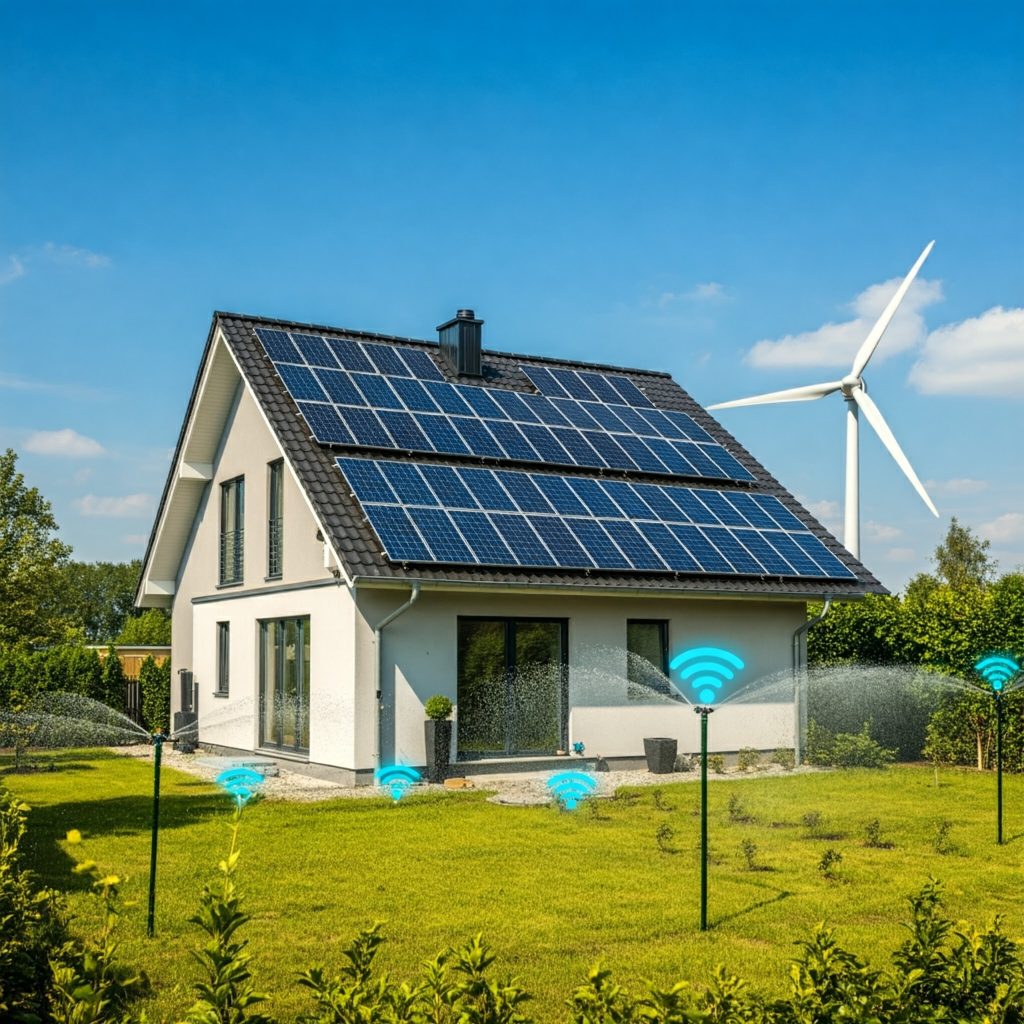As the world grapples with the challenges of climate change and resource depletion, the concept of sustainable living has gained significant traction. Smart homes, with their intelligent automation and energy management capabilities, are poised to play a crucial role in creating a more sustainable future. In this article, we will explore the various ways smart home technology can contribute to a greener and more eco-conscious world.
Energy Efficiency and Demand Management:
- Optimized Energy Consumption: Smart homes leverage various technologies, such as smart thermostats, lighting, and appliances, to optimize energy consumption and reduce waste. By automating tasks and providing real-time insights into energy usage, smart homes empower homeowners to make informed decisions that can significantly lower their carbon footprint.
- Demand Response: Smart home systems can participate in demand response programs, where they automatically adjust energy usage during peak demand periods to reduce strain on the grid and promote a more balanced and sustainable energy infrastructure.
- Renewable Energy Integration: Smart homes can seamlessly integrate with renewable energy sources like solar panels and wind turbines, maximizing the utilization of clean energy and reducing reliance on fossil fuels.
Resource Conservation:
- Water Management: Smart irrigation systems, leak detectors, and water-efficient appliances can help conserve water resources and reduce the energy required for water treatment and distribution.
- Waste Reduction: Smart home technology can assist in waste reduction efforts through features like smart refrigerators that track food expiration dates and composting systems that promote responsible waste management.
Sustainable Building Practices:
- Energy-Efficient Design: Smart homes can be designed and built with energy efficiency in mind, incorporating features like passive solar heating, natural ventilation, and high-performance insulation.
- Sustainable Materials: The use of eco-friendly and recycled materials in construction and furnishing can further reduce the environmental impact of smart homes.
Behavioral Change and Awareness:
- Real-Time Feedback: Smart home systems provide real-time feedback on energy and water consumption, encouraging mindful usage and promoting behavioral changes that lead to a more sustainable lifestyle.
- Gamification: Some smart home platforms incorporate gamification elements to incentivize energy-saving behaviors and make sustainability more engaging and fun.

Community Engagement and Collaboration:
- Neighborhood Energy Networks: Smart homes can connect and share energy resources within a community, creating a more resilient and sustainable energy infrastructure.
- Data Sharing and Collaboration: By sharing anonymized energy usage data, smart homes can contribute to research and development efforts aimed at improving energy efficiency and sustainability on a larger scale.
Conclusion:
Smart homes have the potential to be more than just convenient and comfortable living spaces. They can also serve as powerful tools for promoting sustainability and reducing our environmental impact. By embracing smart technology and adopting eco-conscious practices, we can create a brighter, greener future for ourselves and generations to come.
Call to Action:
- Explore the various ways smart home technology can help you live more sustainably.
- Consider investing in smart home devices and systems that prioritize energy efficiency and resource conservation.
- Join the movement towards a greener lifestyle and make a positive impact on the planet.
